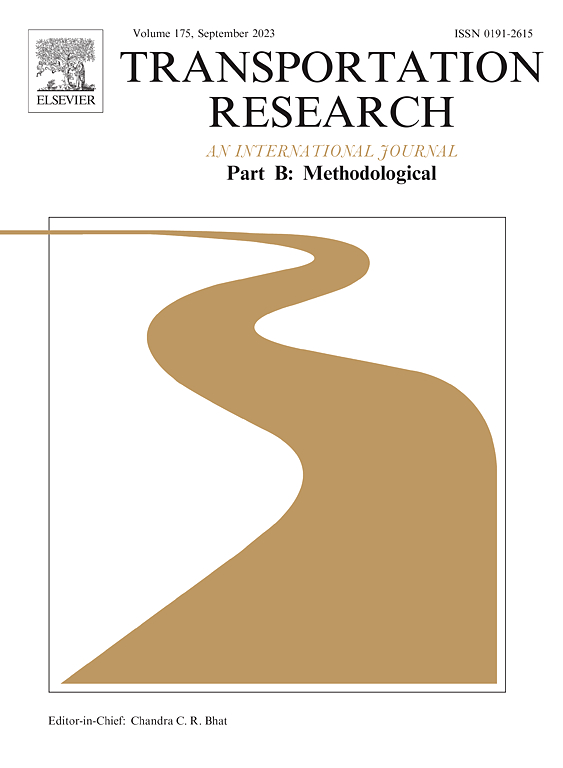Integrated cruise fleet deployment and itinerary scheduling problem: An enhanced Benders decomposition approach
IF 6.3
1区 工程技术
Q1 ECONOMICS
引用次数: 0
Abstract
With the growing popularity of cruise tourism, the issue of comprehensive and precise cruise management is emphasized by the industrial field, which demands effective strategies in both tactical-level cruise deployment and operational-level itinerary scheduling. This rising concern and the expectation of integrated decision, however, increase the complexity of the problem and the difficulty of optimization. This paper provides a cohesive framework and scalable algorithms for the integrated cruise fleet deployment and itinerary scheduling problem. First, to address this problem, we propose an integer programming model based on a time-expanded network that captures the movement dynamics of cruises over a planning horizon. Several problem-specific reformulations including cumulative-flow-based variables and route-based time-expanded network representation are introduced, based on which, we prove that the itinerary scheduling problem is totally unimodular and the integer variables can be relaxed. Second, we introduce a tailored Benders decomposition approach augmented by the simultaneous Magnanti–Wong method, where a valid and pre-obtainable Magnanti–Wong bound is designed, yielding Pareto-optimal cuts in small computation time in each iteration. Finally, we validate our approach using extensive numerical experiments on both simulation instances and a real case study. The results demonstrate the effectiveness of our integrated solving scheme and the practical applicability of our advanced decomposition method, marking a significant advancement in the field of cruise fleet management.
综合邮轮舰队部署和行程安排问题:一种增强的Benders分解方法
随着邮轮旅游的日益普及,邮轮的全面、精准管理问题越来越受到工业界的重视,这就要求在战术层面的邮轮部署和运营层面的行程安排上都有有效的策略。然而,这种日益增长的关注和对综合决策的期望,增加了问题的复杂性和优化的难度。本文为邮轮编队部署和行程调度问题提供了一个内聚框架和可扩展算法。首先,为了解决这个问题,我们提出了一个基于时间扩展网络的整数规划模型,该模型可以在规划范围内捕获巡航的运动动态。引入了基于累积流的变量和基于路线的时间扩展网络表示,证明了行程调度问题是完全非模的,整数变量可以松弛。其次,我们引入了一种定制的Benders分解方法,该方法由同时的Magnanti-Wong方法扩展,其中设计了一个有效且可预获得的Magnanti-Wong界,在每次迭代中以较小的计算时间产生pareto最优切割。最后,我们在模拟实例和实际案例研究中使用广泛的数值实验来验证我们的方法。结果表明了综合求解方案的有效性和先进分解方法的实用性,在邮轮船队管理领域取得了重大进展。
本文章由计算机程序翻译,如有差异,请以英文原文为准。
求助全文
约1分钟内获得全文
求助全文
来源期刊
CiteScore
12.40
自引率
8.80%
发文量
143
审稿时长
14.1 weeks
期刊介绍:
Transportation Research: Part B publishes papers on all methodological aspects of the subject, particularly those that require mathematical analysis. The general theme of the journal is the development and solution of problems that are adequately motivated to deal with important aspects of the design and/or analysis of transportation systems. Areas covered include: traffic flow; design and analysis of transportation networks; control and scheduling; optimization; queuing theory; logistics; supply chains; development and application of statistical, econometric and mathematical models to address transportation problems; cost models; pricing and/or investment; traveler or shipper behavior; cost-benefit methodologies.

 求助内容:
求助内容: 应助结果提醒方式:
应助结果提醒方式:


